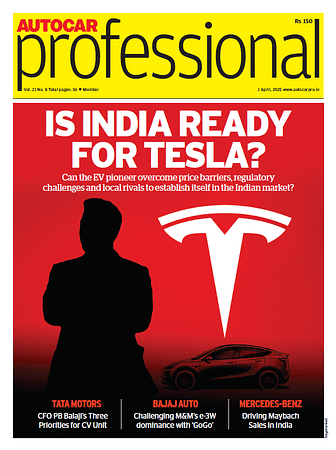India's EV Market: Legacy Manufacturers Challenge Startups as Sales Surge, says BloombergNEF report
TVS Motor, Bajaj Auto, and Hero MotoCorp collectively increased their market share from 29% in 2023 to 40% in 2024, challenging the dominance of pure-play EV startups that initially led the segment.
According to BloombergNEF's latest report, India's electric vehicle market showed robust growth in 2024, with annual sales climbing 27% to exceed 2 million units. This expansion comes amid a shifting competitive landscape, particularly in the crucial two-wheeler segment, where established manufacturers are rapidly gaining ground against EV-focused startups.
The most notable trend in India's EV market is the resurgence of traditional vehicle manufacturers in the electric two-wheeler space, notes BloombergNEF. TVS Motor, Bajaj Auto, and Hero MotoCorp collectively increased their market share from 29% in 2023 to 40% in 2024, challenging the dominance of pure-play EV startups that initially led the segment.
The report highlights that Bajaj Auto demonstrated particularly impressive growth, with annual EV sales increasing 2.7 times during 2024. This surge propelled Bajaj to become the third-largest EV seller in India, overtaking specialist manufacturer Ather Energy.
The data from the Ministry of Road Transport and Highways, analyzed by BloombergNEF, shows this shift represents the natural evolution of a maturing market, where established manufacturers leverage their production expertise, dealer networks, and brand recognition to rapidly scale up their electric offerings.
Commercial EV Segment Experiences Dramatic Growth
According to the report, the electric commercial vehicle sector—encompassing vans and trucks—saw even more dramatic expansion, with sales growing 2.5 times to exceed 6,220 vehicles in 2024. This growth was partly accelerated by the expiration of federal subsidies in April 2024, which prompted a surge in early-year purchases as fleet operators rushed to secure incentives before the deadline.
BloombergNEF notes that the adoption of electric commercial vehicles remains concentrated in the light commercial segment, driven primarily by delivery and logistics providers seeking to reduce operating costs and meet corporate sustainability goals. Heavy electric trucks continue to find limited application, primarily in specialized environments such as ports and mining operations.
The report identifies Maharashtra and Karnataka as the leading states for passenger EV and electric two-wheeler adoption in 2024. Meanwhile, Delhi has established itself as the leader in electric bus deployment, surpassing Maharashtra to host the largest e-bus fleet in the country. Together, Delhi and Maharashtra account for 49% of India's 10,730 electric buses.
BloombergNEF highlights the federal government's policy initiatives, particularly the PM E-Drive Scheme announced in September 2024, as a significant shift by introducing the first-ever upfront subsidies for electric trucks. This represents India's third demand-side policy at the federal level and signals continued government commitment to electrification across vehicle segments.
For municipal buses, the government is maintaining subsidies but with a more targeted approach—focusing on nine cities and prioritizing those that scrap older vehicles. Additionally, a payment security mechanism is being established to address financing challenges that have hindered broader e-bus adoption.
Investment Landscape
The report documents that electric mobility companies headquartered in India secured $1 billion in funding through various channels in 2024, with EV manufacturers capturing approximately $671 million of this total. The year also marked a milestone with Ola Electric becoming India's first pure-play EV company to list on public markets, while Hyundai India completed the country's largest initial public offering to date.
According to the report, electric models still represent just 2.6% of all passenger vehicles sold in the country. The report indicates that favorable operating costs and new federal policies will help continue the momentum this year.
RELATED ARTICLES
JLR Achieves Net Cash Positive Position Following Consistent Global Demand
Luxury automotive manufacturer reaches Reimagine strategy target, with Range Rover, Range Rover Sport, and Defender acco...
Hyundai Motor India Launches New EXTER Hy-CNG Duo EX Variant Priced at INR 7.50 Lakh
New variant expands company's green mobility portfolio with bi-fuel technology and advanced safety features.
Is the ‘Golden Era’ of Premium-led Auto Sales Growth Coming to an End?
The latter part of FY25 has seen a sharp sales slowdown in urban areas – the growth engine of Indian auto since the COVI...






 By Arunima Pal
By Arunima Pal
 20 Feb 2025
20 Feb 2025
 5997 Views
5997 Views





 Shruti Shiraguppi
Shruti Shiraguppi




